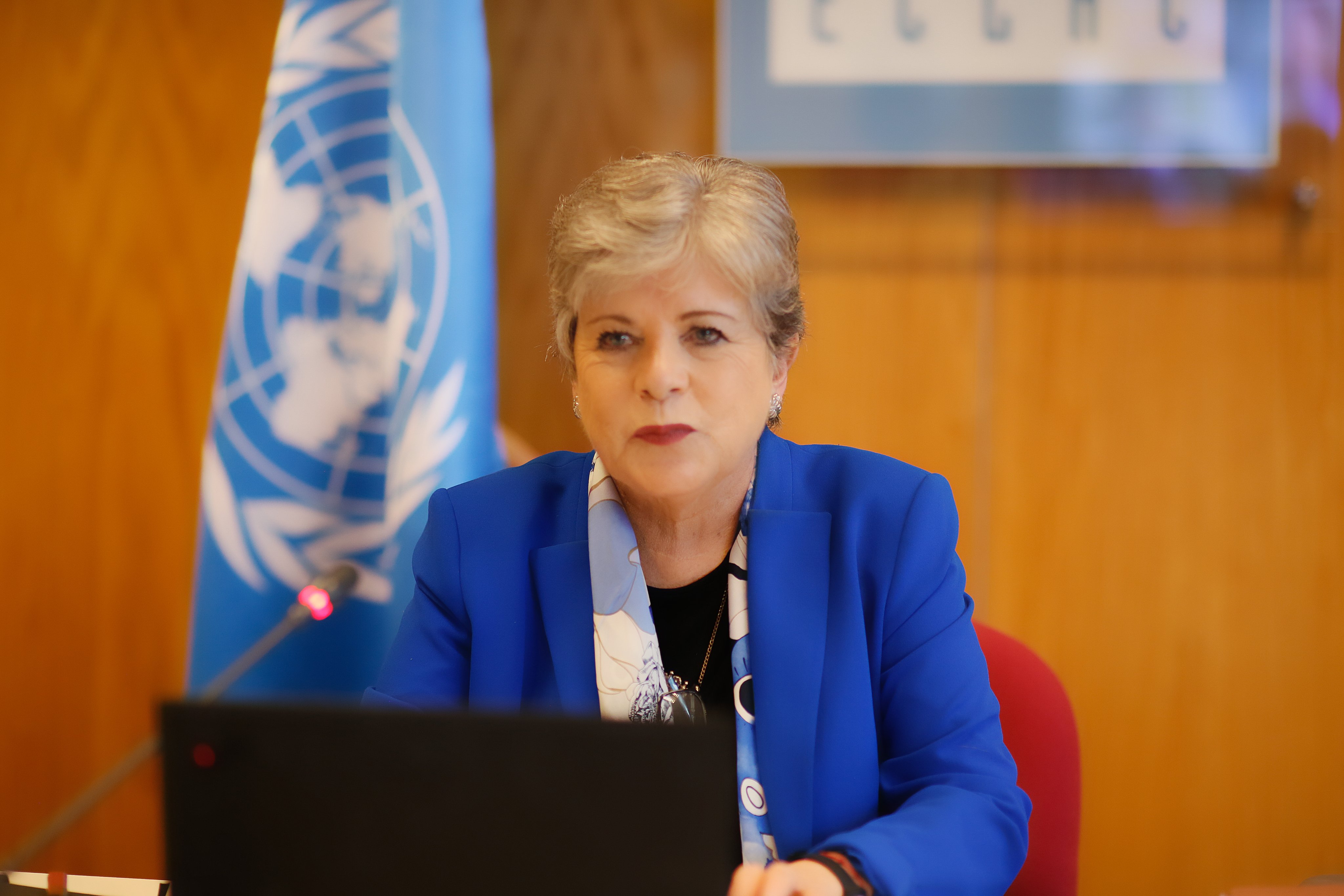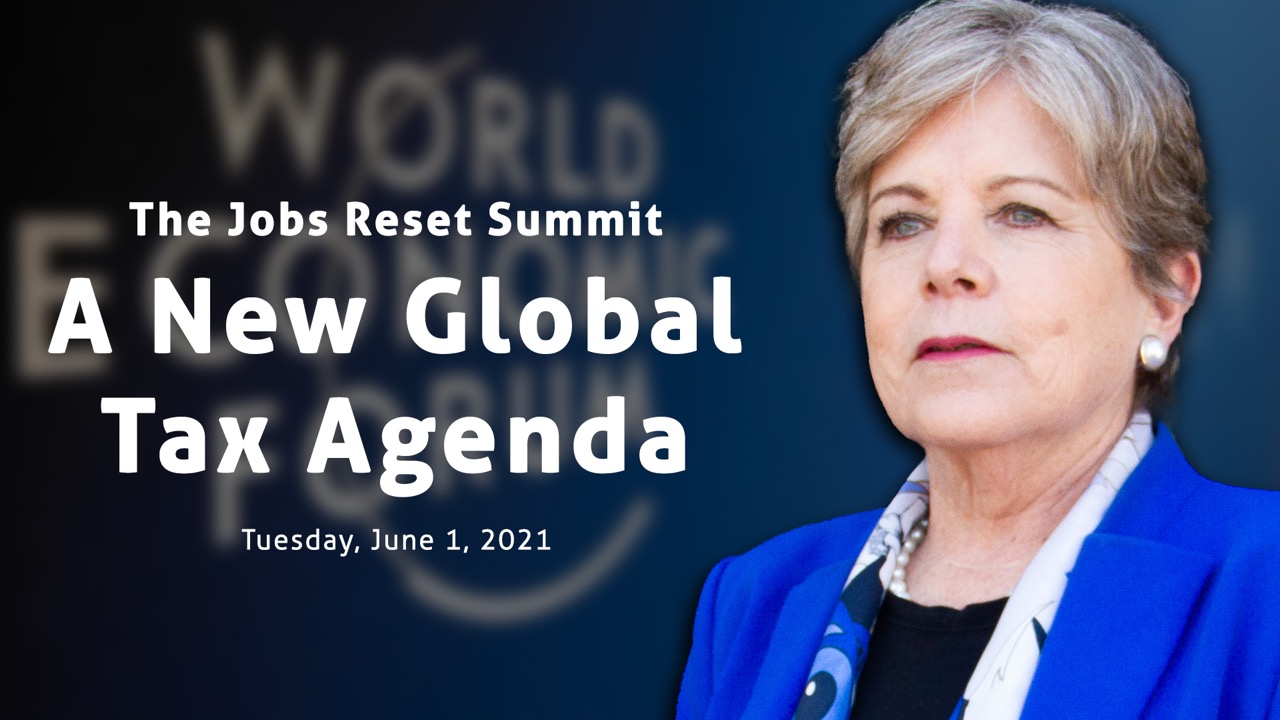The Time is Ripe for a Global Tax Agreement on Extractive Industries: ECLAC
Work area(s)
The organization’s Executive Secretary, Alicia Bárcena, participated in a high-level roundtable convened by the United Nations Secretary-General, António Guterres.

“It is imperative to introduce more progressive and transparent fiscal regimes; the time is ripe for a global tax agreement on extractive industries,” Alicia Bárcena, Executive Secretary of the Economic Commission for Latin America and the Caribbean (ECLAC), stated today during a high-level, virtual international event convened by the United Nations Secretary-General, António Guterres.
ECLAC’s highest authority was one of the main speakers at the High-Level Global Roundtable on Extractive Industries as an Engine for Sustainable Development, convened by the United Nations in the framework of the Financing for Development in the Era of COVID-19 and Beyond Initiative, which brought together Heads of State and Government, high-level government officials, leaders from the private sector and civil society, indigenous peoples, youth, academia, think tanks, the Executive Secretaries of the five UN regional commissions, and the UN Secretary-General’s Special Envoy on Financing the 2030 Agenda for Sustainable Development, Mahmoud Mohieldin.
The global roundtable examined the main recommendations of the Secretary-General’s policy brief on extractive industries – which was released today – and identified the concrete actions and measures that can be implemented on a global, regional and national level, guided by a just transition and the goal of leaving no one behind.
The event was inaugurated by the UN Secretary-General, António Guterres, who indicated that extractive industries generate large amounts of foreign exchange earnings, foreign direct investment and government revenue. “They have the potential to drive economic growth and poverty reduction, yet we cannot escape the fact that extractive industries are also potentially associated with a litany of ills…Our shared responsibility is to ensure that the benefits of mineral resources reach all people in society, not just elites, while safeguarding the natural environment today and for future generations,” Guterres declared.
In her presentation, Alicia Bárcena noted that in spite of the devastating economic and social impacts of COVID-19 and the unprecedented fiscal efforts that governments in Latin America and the Caribbean have made, the majority are considered to be middle-income countries and have received limited multilateral support, which has led to a severe contraction in their fiscal space.
“Latin America and the Caribbean is the world’s most indebted developing region, with the general government’s debt stock reaching 77% of regional GDP in 2020 and total external debt service equaling 59% of its exports of goods and services in 2020,” she explained.
“Regrettably, due to better commodity prices and increased demand, some countries are returning to reprimarization as an option for economic recovery. We are sliding backwards in some cases, moving to extractivism at the expense of people and natural resources,” Bárcena warned.
ECLAC’s Executive Secretary said it is estimated that a $1 million dollar investment in mining, without any value added, generates just one job. “Concentration of productivity gains in a few hands or corporations conspires against sustainable development,” she affirmed.
In this area, Alicia Bárcena presented four proposals, the first of which aims to combat illicit financial flows and achieve full disclosure of profits and productivity gains. “We estimate that illicit financial flows of transactions related to non-renewable natural resources originating from Latin America and the Caribbean totaled $131.5 billion dollars in a decade, 3% of annual GDP,” she explained. “That is why it is imperative to introduce more transparent fiscal regimes,” she insisted, advocating for a global and regional agreement between corporations and the governments of developed and developing countries to stop putting pressure on the latter to impose less royalties as a competitive advantage, and to avoid a race to the bottom with tax incentives and tax breaks, which limit public revenues from royalties and other related instruments.
Secondly, she proposed investing in industrialization and technological innovation in countries of origin, emphasizing that the costly transition to sustainable energy and mining should be a co-investment between corporations, countries and societies, where technology is key along with the commitment to integrate Small and Medium-sized Enterprises (SMEs) in the value chains.
Thirdly, it is necessary to channel revenue from the extractive sector into sustainable development and implementation of the Sustainable Development Goals (SDGs), using innovative instruments. “Recovery policies must aim for social and political compacts for equality and for a global green and blue transition,” she underscored.
Finally, Alicia Bárcena stressed the importance of promoting natural resources governance that has access to information, participation and environmental justice as its starting point. “The Escazú Agreement and Convention 169 of the International Labour Organization (ILO) are urgent in Latin America and the Caribbean, a region where there are more than 265 socioeconomic conflicts, mainly in sites of natural resource extraction, and where indigenous peoples are fighting and dying every day,” she declared.
“It is critical to rethink fiscal regimes and instruments with planning, public policies and full transparency in the whole cycle related to extractive industries in order to redirect their contribution to sustainable development, climate action and people,” the senior UN official indicated upon concluding her remarks.
Related content

Reform on the Multilateral Tax Debate is Needed in the Framework of the United Nations: Alicia Bárcena
ECLAC’s Executive Secretary participated in a session on a new global tax agenda as part of the Jobs Reset Summit organized by the World Economic Forum.
Type
Country(ies)
- Latin America and the Caribbean
Contact
Public Information Unit
- prensa@cepal.org
- (56 2) 2210 2040